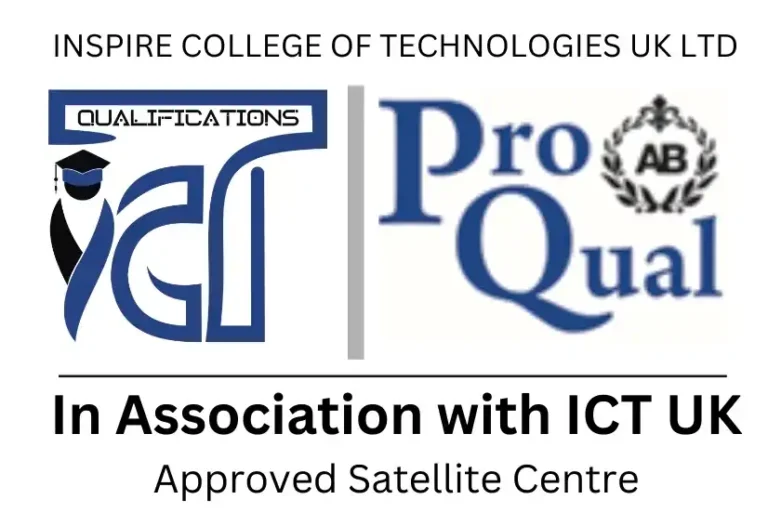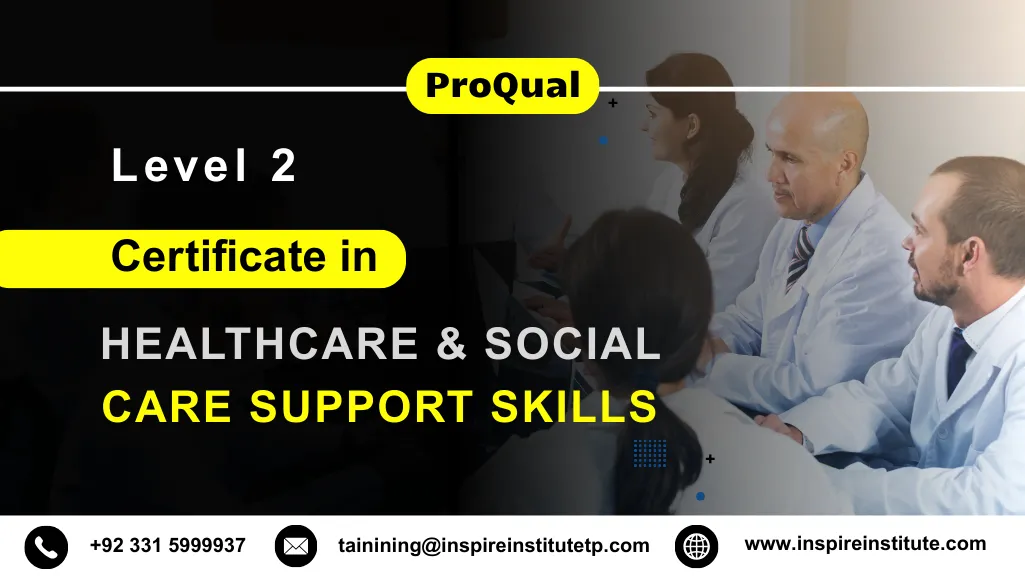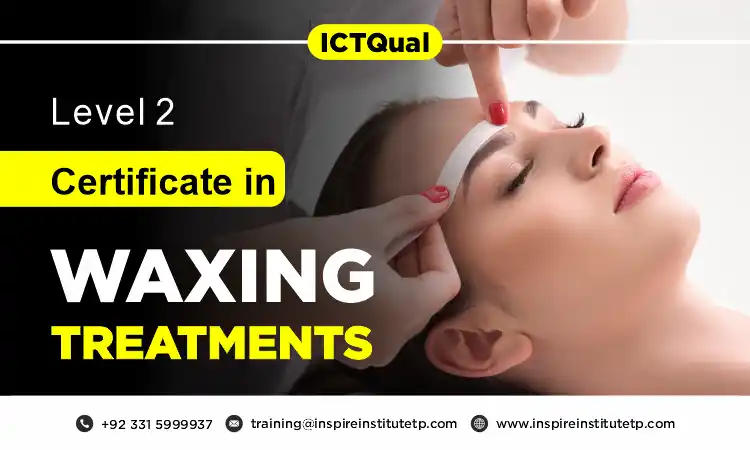ProQual Level 2 Certificate in Healthcare and Social Care Support Skills
The ProQual Level 2 Certificate in Healthcare and Social Care Support Skills is an Ofqual-regulated qualification designed for individuals seeking to develop essential skills and knowledge in healthcare and social care environments. This qualification is ideal for those entering the healthcare sector or individuals who wish to formalize their experience in entry-level roles such as care assistants or support workers. By completing this course, learners gain practical, hands-on experience and demonstrate their competence in supporting individuals with varying care needs.
The ProQual Level 2 Certificate covers a broad range of fundamental topics, including person-centred care, health and safety practices, communication skills, and safeguarding. This qualification is 100% assignment-based, with no exams, allowing for flexible learning tailored to your schedule. Whether you are starting a career in healthcare or looking to enhance your existing role, the ProQual Level 2 Certificate provides the foundational expertise needed to succeed in the healthcare and social care sectors, ensuring that you can deliver high-quality, compassionate care.
Why Choose This Course?
The ProQual Level 2 Certificate in Healthcare and Social Care Support Skills is ideal for individuals who are either new to the healthcare and social care sectors or those who are looking to formalize their existing skills and knowledge. This course is perfect for:
- Entry-level healthcare professionals: Individuals starting their career in healthcare or social care, such as care assistants, support workers, or personal care aides, who want to gain formal qualifications.
- Current care staff: Those already working in healthcare settings who wish to enhance their qualifications and demonstrate their competence in supporting individuals with diverse needs.
- Volunteers and informal carers: People who have been providing care on an informal basis or in voluntary roles and want to gain recognition for their skills through formal certification.
- Career changers: Individuals transitioning into the healthcare or social care sectors from other industries, looking to acquire the necessary foundational knowledge and skills.
- Aspiring healthcare professionals: Anyone aiming to pursue a long-term career in healthcare and social care, including those interested in further qualifications or leadership roles in the future.
This course is designed to provide you with the knowledge and practical skills required to deliver compassionate, effective care in a wide variety of settings, such as hospitals, residential care homes, and community-based services.
Course Overview
Awarding Body: ProQual
Course Level: Level 2
Average Completion Time:
3 to 6 Months
Credit Hours:13
Evidence & Assignment Based

Inspire Institute of Technologies is Approved Satellite Centre of ProQual
Qualification Structure
To achieve the qualification candidates must achieve a minimum of 13 credits: a minimum of 8 credits must be from the Level 2 units and the remaining 5 credits can be from any combination of units from the Level 2 or Level 3 or Level 4 units
| Sr# | Unit Title | Credit Value | GLH |
|---|---|---|---|
| 1 | Implement person centred approaches in health and social care | 5 | 33 |
| 2 | Principles of safeguarding and protection in health and social care | 3 | 26 |
| 3 | Assist in the administration of medication | 4 | 25 |
| 4 | Carry out personal hygiene for individuals unable to care for themselves | 3 | 23 |
| 5 | Support individuals with speech and language disorders to develop their communication skills | 4 | 28 |
| 6 | Perform the non-scrubbed circulating role for perioperative procedures | 3 | 23 |
| 7 | Minimise the risk of infection when transporting and storing healthcare waste | 3 | 20 |
| 8 | Assist in the issuing of prescribed items | 3 | 15 |
| 9 | Assist in the manufacture and assembly of medicinal products | 7 | 20 |
| 10 | Assist in the preparation of documentation, materials and other items for manufacture and assembly of medicinal products | 10 | 40 |
| 11 | Support individuals to carry out their own health care procedures | 2 | 15 |
| 12 | Provide support for therapy sessions | 2 | 14 |
| 13 | Contribute to the discharge of individuals to carers | 2 | 14 |
| 14 | Paediatric Emergency First Aid | 1 | 10 |
| 15 | Introduction to communication in health, social care or children’s and young people’s settings | 3 | 23 |
| 16 | Support individuals to meet personal care needs | 2 | 16 |
| 17 | Contribute to the safe use of medical devices in the perioperative environment | 4 | 29 |
| 18 | Causes and Spread of Infection | 2 | 20 |
| 19 | Prepare documentation, materials, components and other items for the preparation of aseptic products | 6 | 10 |
| 20 | Introduction to duty of care in health, social care or children’s and young people’s settings | 1 | 9 |
| 21 | Provide support for mobility | 2 | 14 |
| 22 | Assist others to plan presentations | 2 | 16 |
| 23 | Order Routine Pharmaceutical Stock | 3 | 11 |
| 24 | Dementia Awareness | 2 | 17 |
| 25 | Move and position individuals in accordance with their plan of care | 4 | 26 |
| 26 | Support individuals to manage continence | 3 | 19 |
| 27 | Handle information in health and social care settings | 1 | 10 |
| 28 | The role of the health and social care worker | 2 | 14 |
| 29 | Obtain and test specimens from individuals | 2 | 12 |
| 30 | Prepare individuals for healthcare activities | 3 | 17 |
| 31 | Assist in planning and evaluating learning activities | 3 | 22 |
| 32 | Assist the practitioner to carry out health care activities | 2 | 13 |
| 33 | Minimise the risk of infection during the removal of used linen | 2 | 15 |
| 34 | Inform an individual of discharge arrangements | 2 | 13 |
| 35 | Understand the context of supporting individuals with learning disabilities | 4 | 35 |
| 36 | Select and wear appropriate personal protective equipment for work in health care settings | 2 | 15 |
| 37 | Monitor and maintain the environment and resources during and after clinical / therapeutic activities | 3 | 20 |
| 38 | Prepare and dress for scrubbed clinical roles | 4 | 28 |
| 39 | Care for individuals with naso-gastric tubes | 3 | 20 |
| 40 | The principles of Infection Prevention and Contro | 3 | 30 |
| 41 | Assist with the provision of a pharmacy service to meet individuals’ needs | 3 | 10 |
| 42 | Contribute to the effectiveness of teams | 3 | 5 |
| 43 | Introduction to personal development in health, social care or children’s and young people’s settings | 3 | 23 |
| 44 | Support individuals who are distressed | 3 | 21 |
| 45 | Support individuals undergoing healthcare activities | 3 | 22 |
| 46 | Prepare equipment for intraoperative cell salvage blood processing | 4 | 26 |
| 47 | Assist in receiving, handling and dispatching clinical specimens | 2 | 17 |
| 48 | Assist in the sale of medicines and products | 8 | 50 |
| 49 | Receive Pharmaceutical Stock | 3 | 9 |
| 50 | Prepare aseptic products | 10 | 40 |
| 51 | Prepare and apply dressings and drains to individuals in the perioperative environment | 2 | 18 |
| 52 | Planning and Monitoring Work | 2 | 8 |
| 53 | Cleaning, Decontamination and Waste Management | 2 | 20 |
| 54 | Ensure your own Actions Reduce risks to Health and Safety | 2 | 8 |
| 55 | Introduction to equality and inclusion in health, social care or children’s and young people’s settings | 2 | 20 |
| 56 | Provide agreed support for foot care | 3 | 23 |
| 57 | Contribute to health and safety in health and social care | 4 | 33 |
| 58 | Support independence in the tasks of daily living | 5 | 33 |
| 59 | Prepare equipment for intraoperative cell salvage blood collection | 2 | 17 |
| 60 | Maintaining quality standards in the health sector | 1 | 8 |
| 61 | Emergency First Aid Skills | 1 | 10 |
| 62 | Assemble prescribed items | 3 | 15 |
| 63 | Support participation in learning and development activities | 3 | 23 |
| 64 | Provide support for sleep | 2 | 13 |
| 65 | Remove wound closure materials | 3 | 24 |
| 66 | Support individuals to eat and drink | 2 | 15 |
| 67 | Undertake agreed pressure area care | 4 | 30 |
| 68 | Meet food safety requirements when providing food and drink for individuals | 2 | 15 |
| 69 | Understand loss and grief in end of life care | 3 | 22 |
| 70 | Understand how to work in end of life care | 3 | 28 |
| 71 | Service improvements in the health sector | 2 | 15 |
Level 3 Units
| Sr# | Unit Title | Credit Value | GLH |
|---|---|---|---|
| 1 | Work with babies and young children to promote their development and learning | 6 | 45 |
| 2 | Engage in personal development in health, social care or children’s and young people’s settings | 3 | 10 |
| 3 | Support individuals with multiple conditions and/or disabilities | 4 | 31 |
| 4 | Support individuals who are bereaved | 4 | 30 |
| 5 | Prepare for and carry out extended feeding techniques | 4 | 27 |
| 6 | Provide support to continue recommended therapies | 3 | 20 |
| 7 | Insert and secure nasogastric tubes | 4 | 30 |
| 8 | Develop positive relationships with children and young people | 4 | 30 |
| 9 | Provide advice and information to enable parents to promote the health and well-being of their newborn babies | 3 | 22 |
| 10 | Facilitate and monitor housing and accommodation services to support individuals with mental health needs | 5 | 32 |
| 11 | Collaborate in the assessment of environmental and social support in the community | 4 | 23 |
| 12 | Influencing Others at Work | 1 | 6 |
| 13 | Care for the physical and nutritional needs of babies and young children | 6 | 45 |
| 14 | Support families who have a child with a disability | 3 | 23 |
| 15 | Support individuals to manage their finances | 3 | 20 |
| 16 | Obtain venous blood samples | 3 | 24 |
| 17 | Implement therapeutic group activities | 4 | 25 |
| 18 | Collate and communicate health information to individuals | 3 | 20 |
| 19 | Provide information and advice to individuals on eating to maintain optimum nutritional status | 5 | 38 |
| 20 | Assist in the implementation of programmes to increase mobility, movement and functional independence | 4 | 28 |
| 21 | Receive and handle clinical specimens within the sterile field | 4 | 30 |
| 22 | Prepare anaesthetic environment and provide support for pre and post-operative anaesthesia and recovery | 5 | 38 |
| 23 | Make recommendations for the use of physical resources in a health setting | 5 | 33 |
| 24 | Maintaining quality standards in the health sector | 2 | 13 |
| 25 | Understand Models of Disability | 3 | 26 |
| 26 | Support individuals to access and use services and facilities | 4 | 25 |
| 27 | Promote and implement health and safety in health and social care | 6 | 43 |
| 28 | Support young people with a disability to make the transition into adulthood | 5 | 40 |
| 29 | Understand mental well-being and mental health promotion | 3 | 14 |
| 30 | Carry out vision screening | 4 | 27 |
| 31 | Assist professionals to support individuals from diverse linguistic and cultural backgrounds to access speech and language therapy services | 5 | 35 |
| 32 | Implement hydrotherapy programmes for individuals and groups | 5 | 35 |
| 33 | Deliver exercise sessions to improve individuals’ health and wellbeing | 5 | 32 |
| 34 | Provide support to the surgical team when preparing individuals for operative and invasive procedures | 4 | 32 |
| 35 | Facilitate person centred assessment, planning, implementation and review | 6 | 45 |
| 36 | Work in partnership with families to support individuals | 4 | 27 |
| 37 | Support individuals to develop and run support groups | 3 | 24 |
| 38 | Monitor own work practice in health, social care or children’s and young people’s settings | 3 | 20 |
| 39 | Perform first line calibration on clinical equipment to ensure it is fit for use | 3 | 20 |
| 40 | Monitor and review individuals progress in relation to maintaining optimum nutritional status | 3 | 26 |
| 41 | Give presentations to groups | 4 | 26 |
| 42 | Support individuals in undertaking their chosen activities | 4 | 24 |
| 43 | Control the use of physical resources in a health setting | 3 | 25 |
| 44 | Support children and young people experiencing transitions | 3 | 28 |
| 45 | Promote communication in health, social care or children’s and young people’s settings | 3 | 10 |
| 46 | Contribute to the prevention of aggressive and abusive behaviour of people | 4 | 26 |
| 47 | Service improvement in the health sector | 3 | 20 |
| 48 | Understand the process and experience of dementia | 3 | 22 |
| 49 | Understand Physical Disability | 3 | 22 |
| 50 | Support individuals with a learning disability to access healthcare | 3 | 25 |
| 51 | Undertake urethral catheterisation processes | 4 | 28 |
| 52 | Promote good practice in handling information in health and social care settings | 2 | 16 |
| 53 | Understand mental health problems | 3 | 14 |
| 54 | Perform routine Electrocardiograph ECG Procedures | 4 | 30 |
| 55 | Undertake treatments and dressings of lesions and wounds | 4 | 25 |
| 56 | Adapt and fit healthcare equipment, medical devices, assistive technology, or products, to meet individuals’ needs | 6 | 37 |
| 57 | Administer oral nutritional products to individuals | 5 | 35 |
| 58 | Promote effective communication with individuals with sensory loss | 4 | 30 |
| 59 | Work with other professionals and agencies to support individuals with physical disability | 3 | 23 |
| 60 | Support individuals to access housing and accommodation services | 4 | 24 |
| 61 | Identify information requirements in a health context | 4 | 30 |
| 62 | Prepare and reproduce permanent radiographic images | 4 | 23 |
| 63 | Develop and prepare speech and language therapy resources for alternative and augmentative communication AAC use | 4 | 25 |
| 64 | Carry out wound drainage care | 4 | 32 |
| 65 | Prepare and provide surgical instrumentation and supplementary items for the surgical team | 6 | 43 |
| 66 | Care for a newly born baby when the mother is unable to do so | 4 | 32 |
| 67 | Understand Child and Young Person Development | 4 | 30 |
| 68 | Provide support to maintain and develop skills for everyday life | 4 | 28 |
| 69 | Facilitate learning and development activities to meet individual needs and preferences | 5 | 35 |
| 70 | Enable individuals with behavioural difficulties to develop strategies to change their behaviour | 8 | 41 |
| 71 | Reprocess endoscopy equipment | 4 | 30 |
| 72 | Support individuals with cognition and learning difficulties | 5 | 34 |
| 73 | Assist in testing individuals’ abilities prior to planning physical activities | 5 | 38 |
| 74 | Support individuals to manage dysphagia | 5 | 35 |
| 75 | Provide advice on foot care for individuals with diabetes | 3 | 23 |
| 76 | Transport, transfer and position individuals and equipment within the perioperative environment | 5 | 32 |
| 77 | Understand Sensory Loss | 3 | 21 |
| 78 | Support families who are affected by Acquired Brain Injury | 3 | 30 |
| 79 | Support individuals during a period of change | 4 | 29 |
| 80 | Perform intravenous cannulation | 4 | 34 |
| 81 | Care for individuals with urethral catheters | 4 | 30 |
| 82 | Conduct routine maintenance on clinical equipment | 4 | 30 |
| 83 | Assist and support individuals to use alternative and augmentative communication systems _AAC | 5 | 35 |
| 84 | Measure and record individuals’ body fluid balance in a perioperative environment | 4 | 23 |
| 85 | Support parents/carers to interact with and care for their newborn baby | 4 | 30 |
| 86 | Deliver training through demonstration and instruction | 3 | 21 |
| 87 | Principles for implementing duty of care in health, social care or children’s and young people’s settings | 1 | 5 |
| 88 | Promote Child and Young Person Development | 3 | 25 |
| 89 | Develop and sustain effective working relationships with staff in other agencies | 4 | 24 |
| 90 | Undertake physiological measurements | 3 | 23 |
| 91 | Undertake stoma care | 4 | 30 |
| 92 | Assure the effective functioning of radiographic image processing equipment | 4 | 25 |
| 93 | Operate equipment for intraoperative cell salvage blood collection | 5 | 40 |
| 94 | Advise and inform individuals on managing their condition | 5 | 31 |
| 95 | Assist others to monitor individuals’ progress in managing dysphagia | 5 | 38 |
| 96 | Support carers to meet the care needs of individuals | 5 | 30 |
| 97 | Maintain pharmaceutical stock | 3 | 4 |
| 98 | Anatomy and Physiology for Maternity Support Workers | 2 | 20 |
| 99 | Receive prescriptions from individuals | 3 | 15 |
| 100 | Understand how to support individuals with autistic spectrum conditions | 3 | 28 |
| 101 | Support Individuals with Specific Communication Needs | 5 | 35 |
| 102 | Obtain and test capillary blood samples | 4 | 30 |
| 103 | Support individuals at the end of life | 7 | 53 |
| 104 | Contribute to effective multidisciplinary team working | 3 | 20 |
| 105 | Analyse and present health related data and information | 4 | 30 |
| 106 | Remove wound drains | 4 | 27 |
| 107 | Develop activities and materials to enable individuals to reach specific communication goals | 5 | 38 |
| 108 | Operate equipment for intraoperative cell salvage blood processing and complete intraoperative cell salvage blood process | 5 | 39 |
| 109 | Support parents/carers and those in a parental role to care for babies during their first year | 5 | 36 |
| 110 | Obtain a client history | 3 | 22 |
| 111 | Manage the availability of physical resources to meet service delivery needs in a health setting | 5 | 33 |
| 112 | Administer medication to individuals, and monitor the effects | 5 | 30 |
| 113 | Assist in the Issuing of Pharmaceutical Stock | 4 | 5 |
| 114 | Undertake an in-process accuracy check of assembled prescribed items prior to the final accuracy check | 4 | 11 |
| 115 | Promote equality and inclusion in health, social care or children’s and young people’s settings | 2 | 8 |
| 116 | Understand the impact of Acquired Brain Injury on individuals | 3 | 28 |
| 117 | Support individuals to live at home | 4 | 25 |
| 118 | Promote person centred approaches in health and social care | 6 | 41 |
| 119 | Undertake tissue viability risk assessments | 3 | 26 |
| 120 | Interact with and support individuals using telecommunications | 5 | 36 |
| 121 | Manufacture equipment or medical devices for individuals within healthcare | 4 | 30 |
| 122 | Provide support for individuals with communication and interaction difficulties | 5 | 39 |
| 123 | Monitor individuals’ progress in relation to managing their body weight and nutrition | 3 | 26 |
| 124 | Assist in implementing treatment programmes for individuals with severely reduced movement/mobility | 5 | 29 |
| 125 | Assist in the delivery of perioperative care and support to individuals | 4 | 31 |
| 126 | Examine the feet of individuals with diabetes | 4 | 32 |
Level 4 Units
| Sr# | Unit Title | Credit Value | GLH |
|---|---|---|---|
| 1 | Support disabled children and young people and those with specific requirements | 6 | 45 |
| 2 | Enable children and young people to understand their health and well-being | 5 | 38 |
| 3 | Develop and agree individualised care plans for babies and families | 5 | 38 |
Who Should Take This Course?
The ProQual Level 2 Certificate in Healthcare and Social Care Support Skills is ideal for individuals who are starting their career in the healthcare and social care sectors or those looking to formalize their existing knowledge and experience. This course is suitable for:
- Entry-level professionals: Those new to the healthcare or social care field, such as care assistants, support workers, or personal care aides, who want to gain foundational skills and a recognized qualification to advance their careers.
- Current healthcare staff: Individuals already working in healthcare roles who wish to formalize their skills, enhance their career prospects, and meet industry standards.
- Volunteers and informal carers: People who have been providing informal care or volunteering in care settings and want to obtain formal recognition of their skills and competence.
- Career changers: Individuals looking to transition into healthcare or social care from another field and wishing to gain a solid understanding of key healthcare concepts and practices.
- Those seeking further qualifications: Anyone interested in progressing to more advanced qualifications in healthcare and social care, such as the ProQual Level 3 Certificate or Diploma programs, and aspiring to take on senior roles.
This course provides learners with essential skills in person-centred care, safeguarding, communication, and health and safety practices, preparing them for a successful career in various healthcare settings.
Course Benefits
The ProQual Level 2 Certificate in Healthcare and Social Care Support Skills offers a range of benefits, making it an essential qualification for those starting or advancing in their healthcare and social care careers. Here are the key benefits of completing this course:
1. Recognized and Ofqual-Regulated Qualification
The ProQual Level 2 Certificate is Ofqual-regulated, ensuring that it meets high educational standards and is recognized by employers across the UK and internationally. This globally accepted certification enhances your credibility in the healthcare and social care sectors.
2. Flexible Learning Options
The course is designed to accommodate busy professionals. It’s assignment-based, meaning there are no exams, and learners can complete the course at their own pace, making it easier to balance studies with work or other commitments.
3. Practical, Real-World Skills
This course provides hands-on learning experiences and equips you with essential skills in person-centred care, communication, safeguarding, health and safety, and more. You will gain knowledge that can be immediately applied in real-world care settings, making you more effective in your role.
4. No Formal Qualifications Required
The course is accessible to individuals with no prior formal qualifications, making it ideal for those starting a career in healthcare or social care. It is designed to provide learners with the fundamental skills and knowledge necessary for success in the industry.
5. Career Advancement Opportunities
By earning this certificate, you increase your job prospects and potential for career advancement. It prepares you for entry-level roles like care assistant or support worker and opens up opportunities for further qualifications, such as the ProQual Level 3 Certificate or Diploma programs.
6. International Recognition
This qualification is not only valuable within the UK but also internationally recognized, offering career mobility in healthcare and social care sectors around the world.
7. Enhanced Professional Confidence
Through practical assessments and hands-on experience, you will build confidence in delivering high-quality care. You will learn how to manage complex care needs, contribute to care planning, and make informed decisions, ensuring better outcomes for the individuals you care for.
8. Comprehensive Support
During the course, you’ll receive support from qualified assessors and mentors who will guide you through the learning process. The continuous feedback and personalized support ensure that you are on track and confident in your abilities.
9. Focus on Core Competencies
This course focuses on developing key competencies required in the healthcare and social care sectors, including safeguarding, risk assessment, and health and safety practices, ensuring you are prepared for a wide range of care settings.
10. Opens Pathways to Further Learning
Completing the ProQual Level 2 Certificate sets the foundation for further qualifications and professional development. It is an excellent stepping stone for individuals looking to pursue advanced qualifications, including the Level 3 Certificate or Diploma in Healthcare and Social Care.
By earning the ProQual Level 2 Certificate in Healthcare and Social Care Support Skills, you are setting yourself up for a successful, rewarding career in the healthcare industry while gaining valuable, practical skills that employers value.
Eligibility Criteria
To enroll in the ProQual Level 2 Certificate in Healthcare and Social Care Support Skills, applicants must meet the following eligibility criteria:
Minimum Age Requirement:he minimum age for enrolling in this course is 16 years
No Prior Qualifications Needed: There is no requirement for formal qualifications to enroll in this course. It is designed to be accessible for those starting their career in healthcare or social care, as well as individuals with relevant work experience looking to gain formal recognition of their skills.
Basic Literacy and Numeracy Skills: Applicants should have a basic understanding of literacy and numeracy skills. The course involves reading materials, completing written assignments, and performing basic calculations related to healthcare tasks, so a solid grasp of these skills is necessary for successful completion.
Relevant Experience: While no prior healthcare qualification is required, applicants should have some experience or exposure to working in a healthcare or social care environment, whether through voluntary work, placements, or employment.
Commitment to the Profession: Applicants should demonstrate a clear commitment to working in the healthcare or social care profession, with a genuine interest in improving the lives of individuals receiving care.
Current Role:The course is suitable for individuals who are currently working in, or have access to a healthcare or social care setting, such as care assistants, support workers, or volunteers.
The Qualification Process
Here is a step-by-step guide to help you understand the entire journey from pre-registration to certification:
- Self-Assessment:
Before beginning the course, learners will conduct a self-assessment to evaluate their current skills and knowledge in healthcare and social care. - Registration:
Once the self-assessment is complete, learners can proceed with registration through an accredited training provider. During registration, personal details, prior experience, and course preferences will be confirmed. The training provider will also assign a dedicated assessor to guide you through the qualification process. - Induction:
An induction session will be conducted to familiarize learners with the course structure, assessment methods, and key expectations. This is an opportunity for learners to ask questions, clarify any doubts, and understand the resources and support available to them throughout the course. - Evidence Submission:
The course is assignment-based, and learners are required to submit various forms of evidence to demonstrate their understanding and competence in the topics covered - Feedback and Revision:
Once evidence is submitted, the learner will receive feedback from their assessor. This feedback is constructive and focuses on areas of improvement. - Competence Evidence:
As part of the qualification process, learners must provide competence evidence. This includes practical demonstrations of skills in the workplace, such as delivering person-centred care, following health and safety procedures, and communicating effectively with individuals and teams. - Internal Quality Assurance (IQA):
The learner’s work and evidence are subject to internal quality assurance (IQA) by the training provider. The IQA process ensures that all assessments are conducted fairly and in accordance with the qualification requirements. - External Verification:
After passing the internal quality assurance process, the learner’s work may undergo external verification by an external verifier appointed by the awarding body - Certification:
Upon successful completion of the course and verification of evidence, learners will be awarded the ProQual Level 2 Certificate in Healthcare and Social Care Support Skills. This official certification acknowledges the learner’s competence and ability to work effectively in healthcare and social care environments. The certificate is Ofqual-regulated, meaning it is recognized by employers and regulatory bodies across the UK and internationally.
By following this structured qualification process, learners ensure they meet the required standards, gain practical skills, and are prepared for successful roles in the healthcare and social care industries.







